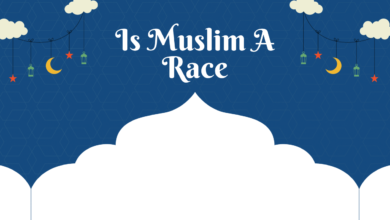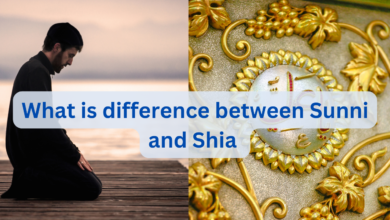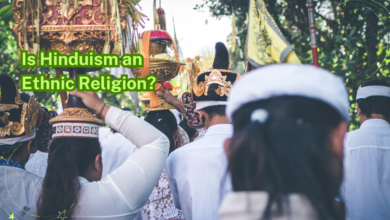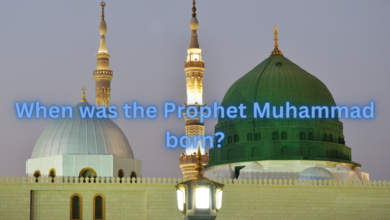How did Prophet Muhammad died?
Exploring the Circumstances Surrounding the Death of Islam's Final Prophet
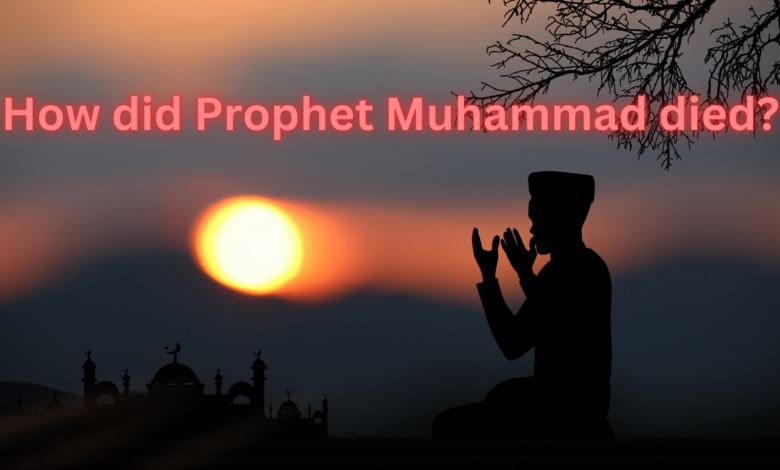
How did Prophet Muhammad died?
Prophet Muhammad passed away in the year 632 CE in the city of Medina. He died due to a natural illness, marked by a high fever and severe weakness. There is a consensus among Islamic scholars that his death was not the result of foul play or poison.
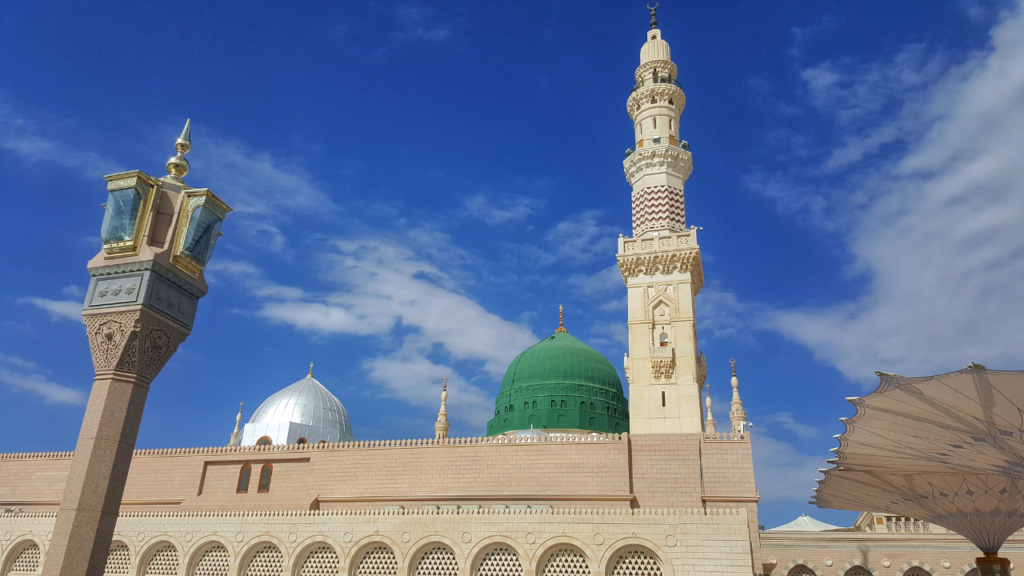
Introduction
The death of Prophet Muhammad (peace be upon him) is a significant event in Islamic history and a topic of great reverence and importance for Muslims worldwide. Prophet Muhammad is considered the final prophet in Islam, and his life and teachings have had a profound impact on the Muslim faith and its followers. In this article, we will explore the circumstances surrounding the passing of Prophet Muhammad and the legacy he left behind.
The Last Days of Prophet Muhammad
Prophet Muhammad was born in Mecca in the year 570 CE and began receiving revelations from Allah (God) at the age of 40. He spent 23 years of his life delivering the message of Islam and leading the early Muslim community. During this time, he faced numerous challenges, including opposition from the Quraysh tribe in Mecca and the migration to Medina.
In the year 632 CE, Prophet Muhammad returned to Mecca after conquering the city without bloodshed, marking a momentous triumph for the nascent Islamic faith. He continued to spread the message of Islam and delivered his farewell sermon during his final pilgrimage (Hajj) to Mecca, which attracted tens of thousands of Muslims.
Also check.
- What is difference between Sunni and Shia?
- Why Suicide is Haram in Islam
- What is the major sins in Islam
- What are the most important things in Islam?
- Who became a Muslim during the reign of Prophet Muhammad?
The Illness of Prophet Muhammad
After returning from the farewell pilgrimage, Prophet Muhammad’s health began to decline. He fell ill, suffering from a high fever and severe weakness. Despite his illness, he continued to receive visitors and offer guidance to his followers. His condition worsened over several days, and he became bedridden.
It is important to note that there is a consensus among Islamic scholars that Prophet Muhammad’s illness was a natural one and not a result of foul play or poison, as some historical accounts have suggested. The Prophet’s life had been marked by steadfast dedication to his mission, and his illness was seen as a test from Allah.
The Death of Prophet Muhammad
On the 12th of Rabi’ al-Awwal, in the year 632 CE, Prophet Muhammad passed away in the house of his wife Aisha in Medina. His death marked the end of an era and left the Muslim community in deep mourning.
Prophet Muhammad’s last words were a reminder of the core principles of Islam: “O Allah, with the highest companion.” He emphasized the importance of monotheism and the belief in one God, underscoring the fundamental message of Islam.
Legacy of Prophet Muhammad
Prophet Muhammad’s death was a moment of profound sorrow for Muslims, as they had lost their beloved leader and guide. However, his legacy continues to shape the lives of over a billion Muslims around the world. His teachings, recorded in the Quran and Hadith (sayings and actions), provide moral and spiritual guidance for Muslims in all aspects of life.
Prophet Muhammad’s death also marked the beginning of the institution of the caliphate, where his closest companions, known as the Rashidun Caliphs, succeeded him in leading the Muslim community. These caliphs played a pivotal role in spreading Islam beyond the Arabian Peninsula and ensuring the preservation of the faith’s core teachings.
Conclusion
The passing of Prophet Muhammad is a pivotal moment in Islamic history. His life, marked by unwavering dedication to spreading the message of monotheism and peace, continues to inspire and guide Muslims worldwide. While his physical presence may have ended, his legacy lives on through the Quran, the Hadith, and the countless Muslims who strive to follow his example in their daily lives. The death of Prophet Muhammad is a reminder of the transient nature of human existence but also a testament to the enduring impact of his message of faith, compassion, and justice.
FAQs
How did Prophet Muhammad die?
Prophet Muhammad passed away in the year 632 CE in the city of Medina. He died due to a natural illness, marked by a high fever and severe weakness. There is a consensus among Islamic scholars that his death was not the result of foul play or poison.
Where was Prophet Muhammad when he passed away?
Prophet Muhammad passed away in the house of his wife, Aisha, in Medina, specifically in her room. This room has since become a place of reverence for Muslims and is known as the “Room of Aisha.”
What were Prophet Muhammad’s last words?
Prophet Muhammad’s last words were a reminder of the core principles of Islam. He said, “O Allah, with the highest companion,” emphasizing the importance of monotheism and belief in one God.
What day of the Islamic calendar did Prophet Muhammad die on?
Prophet Muhammad passed away on the 12th day of Rabi’ al-Awwal in the Islamic calendar, which is the third month of the Islamic lunar calendar.
What happened to the leadership of the Muslim community after Prophet Muhammad’s death?
After Prophet Muhammad’s death, his closest companions, known as the Rashidun Caliphs, succeeded him as leaders of the Muslim community. They are often referred to as the “Rightly Guided Caliphs” and played a crucial role in expanding Islam and preserving its teachings.
Is there any evidence to suggest foul play or poisoning in Prophet Muhammad’s death?
No, there is no credible historical evidence to support the theory of foul play or poisoning in Prophet Muhammad’s death. Islamic scholars and historians overwhelmingly agree that his death resulted from a natural illness.
How do Muslims commemorate the passing of Prophet Muhammad?
Muslims commemorate the passing of Prophet Muhammad through acts of remembrance, prayer, and reflection. It is a time for Muslims to reflect on his teachings, his dedication to monotheism, and his role as the final prophet in Islam.
What is the significance of Prophet Muhammad’s legacy today?
Prophet Muhammad’s legacy remains highly significant for Muslims worldwide. His teachings, as recorded in the Quran and Hadith, continue to provide moral and spiritual guidance. His life serves as an example of compassion, justice, and devotion to monotheism.
Are there any particular rituals associated with the anniversary of Prophet Muhammad’s passing?
While there are no specific rituals mandated by Islam for commemorating the anniversary of Prophet Muhammad’s passing, many Muslims choose to engage in acts of worship, charity, and remembrance during this time as a way to honor his memory.
Is there a specific date in the Gregorian calendar for Prophet Muhammad’s passing?
Prophet Muhammad’s passing in the Islamic calendar does not correspond to a fixed date in the Gregorian calendar because the Islamic calendar is lunar. The date varies each year, but it typically falls in the months of October or November in the Gregorian calendar.
